
Amy King
"Poetry is a city of words, a complex heterogeneity that functions both as its parts and as a whole. It’s full of systems—metaphoric, symbolic, sonic—analogous to the sewage, electrical, and transportation systems that animate a city." - Cole Swensen from Poetry City
The poem as a city, the city as a poem, and the relationship between the two is a concept that has revolutionized the way many people perceive poetry. This goes beyond simply being influenced by your environment, and reveals a correlation that is deep and so true. The way it buzzes and hums, the way it rushes back and forth, and the way it can appear to completely stand still. One poet who feels an ever growing bond with her city, Brooklyn, New York, is Amy King.
Amy moved to Brooklyn shortly after receiving her M.A. in American Studies with emphasis on Poetics. Since then Amy has gone on to obtain an M.F.A. in Creative Writing from Brooklyn College and taught there as well. She has penned three books, the most recent of which is "I'm The Man Who Loves You" (Blazevox, 2007). She also teaches a variety of composition, literature, and creative writing courses in Nassau Community College’s English Department.
Recently, Amy was able to answer a few of our questions in between classes regarding the city, her poetry, and poetry in general.
Orange Alert (OA): In an interview you did with Curve, you talked about urban poetics and Cole Swensen's "Poetry City". Now that we are approaching the two year mark of that incredible publication, how has her work affected you as a poet and/or your outlook poetry in general?
Amy King (AK): The idea that “poetry and cities mirror each other, shed light on each other, and remain together in important works” (Swensen) is more relevant now than ever. Despite the bad rap cities get in general as dangerous and sordid places, cities act as barometers for the overall state of the world. They are the places that experiment with the hope that differences can co-exist, enrich, create, and thrive symbiotically together. The inhabitants are looked to for new ideas and innovations, yes; but also, they are looked to for reactions and resistance against the homogenizing (& eliminating) activities of the powers-that-be. In one way, the very existence of cities and their interdependent-though-very-different inhabitants betray and mock the simple-minded clarifications & claims for security in the “war of good versus evil.” Bah. Even with the threat of violence, from within and outside, hope is the ultimate glue – to abandon the city and retreat to some sprawling zone of suburban and rural safety where ideas don’t clamor and clang is a betrayal of that hope in the seemingly impossible. Likewise, the poet does not abandon the complexities, difficulties, and mysteries of the poem, no matter how it is received or dismissed by the world. The poet explores, diving into dirty sewers and dark recesses, sharing a drink on the rooftop of a poet who opposes her views, dancing to the beat of an instrument she’s never heard before, railing against the checkpoints that would strip her of her rights, finally lying down with the loveliest of “foreigners” – and reports her survival and lessons with her brand of eloquence to the rest of the world. The city and the poem serve as the vehicles for this kind of living. The urban poetic is essentially the personal and political the women’s movement harkened and another position on Robert Creeley’s claim that form is an extension of content.
Amy King (AK): The idea that “poetry and cities mirror each other, shed light on each other, and remain together in important works” (Swensen) is more relevant now than ever. Despite the bad rap cities get in general as dangerous and sordid places, cities act as barometers for the overall state of the world. They are the places that experiment with the hope that differences can co-exist, enrich, create, and thrive symbiotically together. The inhabitants are looked to for new ideas and innovations, yes; but also, they are looked to for reactions and resistance against the homogenizing (& eliminating) activities of the powers-that-be. In one way, the very existence of cities and their interdependent-though-very-different inhabitants betray and mock the simple-minded clarifications & claims for security in the “war of good versus evil.” Bah. Even with the threat of violence, from within and outside, hope is the ultimate glue – to abandon the city and retreat to some sprawling zone of suburban and rural safety where ideas don’t clamor and clang is a betrayal of that hope in the seemingly impossible. Likewise, the poet does not abandon the complexities, difficulties, and mysteries of the poem, no matter how it is received or dismissed by the world. The poet explores, diving into dirty sewers and dark recesses, sharing a drink on the rooftop of a poet who opposes her views, dancing to the beat of an instrument she’s never heard before, railing against the checkpoints that would strip her of her rights, finally lying down with the loveliest of “foreigners” – and reports her survival and lessons with her brand of eloquence to the rest of the world. The city and the poem serve as the vehicles for this kind of living. The urban poetic is essentially the personal and political the women’s movement harkened and another position on Robert Creeley’s claim that form is an extension of content.
OA: What is your opinion of the current state of poetry? Is it thriving in an internet era, or is it being watered down by an overabundance of outlets ( i.e. blogs/myspace/lit zines, etc)? Is there an audience for the modern poet?
AK: I don’t think there is an overabundance of poetry anymore than there is an overabundance of music or painting or any other discipline that uses a specific medium as a foundational basis. There are ranges and tastes that dictate how well a genre or artist is distributed, and as it goes now, sometimes the more-watered down, less artful work gets the most attention. As such, poetry in its older, more respected “proper” roles such as cultural lens and political conscience are no longer looked to by the general population, which is something of a loss to lament; nonetheless, poetry continues to thrive in the smaller spaces, as it always has, with next to no funding for poets’ survival – this is the poetry to look for because it is the most authentic, least self-serving (or capitalist-driven), earnest and honest in its endeavors. One can find it in the ‘free’ or moderately-funded places like blogs, hard-won independent bookstores, local community groups of poets who host readings and workshops, small press/small town publishers, etc. We, as a nation, need more of these pockets of poets and places/spaces for distribution than ever before, as they are comprised of artists who continue to bear witness, innovatively creating means and unpopular viewpoints, disseminating ‘alternative’ visions and ideas, etc. by as many free outlets as possible.
AK: I don’t think there is an overabundance of poetry anymore than there is an overabundance of music or painting or any other discipline that uses a specific medium as a foundational basis. There are ranges and tastes that dictate how well a genre or artist is distributed, and as it goes now, sometimes the more-watered down, less artful work gets the most attention. As such, poetry in its older, more respected “proper” roles such as cultural lens and political conscience are no longer looked to by the general population, which is something of a loss to lament; nonetheless, poetry continues to thrive in the smaller spaces, as it always has, with next to no funding for poets’ survival – this is the poetry to look for because it is the most authentic, least self-serving (or capitalist-driven), earnest and honest in its endeavors. One can find it in the ‘free’ or moderately-funded places like blogs, hard-won independent bookstores, local community groups of poets who host readings and workshops, small press/small town publishers, etc. We, as a nation, need more of these pockets of poets and places/spaces for distribution than ever before, as they are comprised of artists who continue to bear witness, innovatively creating means and unpopular viewpoints, disseminating ‘alternative’ visions and ideas, etc. by as many free outlets as possible.
OA: Who are some of your biggest literary influences?
AK: I know you want “literary” ones, but just like poetry and storytelling, the literary extends into other disciplines for me, so I’ll give you a number of biggies that held me captive directly after my undergrad years in a kind of explosive way – many still do.
Cesar Vallejo, Günter Grass, Laura Riding Jackson, Samuel Beckett, Richard Foreman, Gertrude Stein, Charles Bernstein, Antonin Artaud, Roland Barthes, Susan Sontag, Chris Marker, Krzysztof Kieslowski, Frida Kahlo, Cindy Sherman, Robert Frank, Diane Arbus, John Ashbery, Susan Howe, Fanny Howe, George Oppen, Rosmarie Waldrop, Milan Kundera, Jeanette Winterson, Joseph Cornell, Guided By Voices, early Pavement, Palace Brothers, P.J. Harvey, Ludwig Wittgenstein, etc. etc.
AK: I know you want “literary” ones, but just like poetry and storytelling, the literary extends into other disciplines for me, so I’ll give you a number of biggies that held me captive directly after my undergrad years in a kind of explosive way – many still do.
Cesar Vallejo, Günter Grass, Laura Riding Jackson, Samuel Beckett, Richard Foreman, Gertrude Stein, Charles Bernstein, Antonin Artaud, Roland Barthes, Susan Sontag, Chris Marker, Krzysztof Kieslowski, Frida Kahlo, Cindy Sherman, Robert Frank, Diane Arbus, John Ashbery, Susan Howe, Fanny Howe, George Oppen, Rosmarie Waldrop, Milan Kundera, Jeanette Winterson, Joseph Cornell, Guided By Voices, early Pavement, Palace Brothers, P.J. Harvey, Ludwig Wittgenstein, etc. etc.
OA: I just finished reading your e-book "The Good Campaign", and I enjoyed all of the poems and the ability to access them in a .pdf format. However, do you feel that there maybe something lost in the transition from bound paper and ink, personally designed or created cover, and so on, to the e-books? Is there a difference between the printed word and the electronic word? How important is the presentation of your poetry to you?
AK: Again, it seems vaguely to come down to the issue of our consumerist –driven mentality in some devaluing way. I can turn electronic text into a paper product, assemble it as nicely or rough as I like, and have a product to pass out to my students or friends. I can also simply ask that they buy a book for the price of a movie ticket plus popcorn. While we value the product in this economy, we tend to look unkindly on the ‘virtual’ one, regardless of the merits of the work. Now that money has begun to permeate the virtual realm, this notion is changing slightly, but still, the majority of poets and readers of poetry will herald the bound book over the virtual-yet-printable one most days. I can hear the echoes, “But isn’t it much better to hold a book in one’s hand?” as if putting together a bound-copy of something from the internet were impossible or a waste. I think of a worthwhile chapbook I find online as an opportunity – first, it’s free and that means I can recommend it widely, and second, I can turn the book into a water-proof masterpiece ready for the beach and bathtub, if my artistic tastes are inclined toward laminating that day – the “product” becomes an interactive composition in a way. The idea that we are limited to waiting for a finished product to be handed to us for some money is a bit tragic as it really illustrates our laissez-fare attitudes, even when it comes to the non-product of poetry.
AK: Again, it seems vaguely to come down to the issue of our consumerist –driven mentality in some devaluing way. I can turn electronic text into a paper product, assemble it as nicely or rough as I like, and have a product to pass out to my students or friends. I can also simply ask that they buy a book for the price of a movie ticket plus popcorn. While we value the product in this economy, we tend to look unkindly on the ‘virtual’ one, regardless of the merits of the work. Now that money has begun to permeate the virtual realm, this notion is changing slightly, but still, the majority of poets and readers of poetry will herald the bound book over the virtual-yet-printable one most days. I can hear the echoes, “But isn’t it much better to hold a book in one’s hand?” as if putting together a bound-copy of something from the internet were impossible or a waste. I think of a worthwhile chapbook I find online as an opportunity – first, it’s free and that means I can recommend it widely, and second, I can turn the book into a water-proof masterpiece ready for the beach and bathtub, if my artistic tastes are inclined toward laminating that day – the “product” becomes an interactive composition in a way. The idea that we are limited to waiting for a finished product to be handed to us for some money is a bit tragic as it really illustrates our laissez-fare attitudes, even when it comes to the non-product of poetry.
And the old argument that better poetry gets published (i.e. is monetarily-invested in) simply doesn’t hold as we can see not all good poetry is in book form and all poetry books don’t offer the best poetry. This fact is easy to understand just by going through the shelves of your local B&N. Poetry doesn’t make money in most cases, no matter how it is disseminated, so why must poetry-as-published-book be the only way we can receive it? Poetry itself is not merely “received”; poetry is reliant on the reader’s active participation to make it become. Perhaps too simplistically put, value should not be synonymous with published product.
OA: List the top five chapbooks currently on your bookshelf or nightstand.
AK: Gina Myers – “Fear of the Knee of Bending Backwards” (H_NGM_N FLIP)
Joseph Massey – “Property Line” (Fewer and Further Press)
Ana Bozicevic-Bowling - “Document” (Octopus Books)
Betsy Wheeler & Dean Gorman – “Absolutely You” (sixwixiespress)
Barry Schwabsky – “For Despair” (Seeing Eye Books)
Stacy Szymaszek – “Pasolini Poems” (Cy Press)
Linh Dinh – “Drunkard Boxing” (Singing Horse Press)
Wait, that’s seven. Seven equals five in poetry. Just ask Orwell’s Winston.
AK: Gina Myers – “Fear of the Knee of Bending Backwards” (H_NGM_N FLIP)
Joseph Massey – “Property Line” (Fewer and Further Press)
Ana Bozicevic-Bowling - “Document” (Octopus Books)
Betsy Wheeler & Dean Gorman – “Absolutely You” (sixwixiespress)
Barry Schwabsky – “For Despair” (Seeing Eye Books)
Stacy Szymaszek – “Pasolini Poems” (Cy Press)
Linh Dinh – “Drunkard Boxing” (Singing Horse Press)
Wait, that’s seven. Seven equals five in poetry. Just ask Orwell’s Winston.
OA: What's next for Amy King?
AK: Amy King will write about herself in third person in an attempt to control her future better like some misguided-but-amiable fortune teller. She will spend the next few days enthusiastically diving into her latest acquisition, TRIPTYCH, by Jerome Rothenberg and then writing as influenced by the bounty she discovers. She will then fulfill all of the promises she’s left hanging and make nice with her enemies, or at least, find a way to secretly appreciate them and avoid dwelling on their flaws, which in some small way, are probably her own since they irk her enough to rise to the surface of her consciousness. She will also discover that even pseudo-predicting the future doesn’t hide the fact that she has no real plans to astound your readers with, and she kind of likes the open-endedness of being non-committal and sans plans, no matter how irresponsible she appears.
Bonus Questions:
OA: Coffee? If yes, what is your favorite kind of coffee, and where is your favorite coffee place?
OA: Coffee? If yes, what is your favorite kind of coffee, and where is your favorite coffee place?
AK: Gimme Coffee, for as long as she roasts her beans. Based in Ithaca, local shop in Williamsburg, Brooklyn. I grind my brew each morning and sip the Ethiopian all the live long day.
OA: What type of music do you enjoy listening to currently? Does music affect your writing in anyway?
AK: Music is an influence, though not as obviously as some may imagine. I do have direct references as detected by a few titles – there’s the long-standing, Guided By Voices/Robert Pollard, and the headliner of the book, Wilco. But while overheard and misheard lyrics may play a part, mostly I’m affected by the mood of whatever music plays in the background. My tastes range from the melancholic such as early Cat Power or Palace Brothers, to any number of long-standing folks I return to like Neutral Milk Hotel, REM, Sonic Youth, etc etc. I have newer likes such as CocoRosie, Akron/Family, Devendra Banhart, Antony, and oh loads of local bands.
AK: Music is an influence, though not as obviously as some may imagine. I do have direct references as detected by a few titles – there’s the long-standing, Guided By Voices/Robert Pollard, and the headliner of the book, Wilco. But while overheard and misheard lyrics may play a part, mostly I’m affected by the mood of whatever music plays in the background. My tastes range from the melancholic such as early Cat Power or Palace Brothers, to any number of long-standing folks I return to like Neutral Milk Hotel, REM, Sonic Youth, etc etc. I have newer likes such as CocoRosie, Akron/Family, Devendra Banhart, Antony, and oh loads of local bands.
For more information on Amy King please visit her website and to purchase your copy of "I'm the Man who Loves You" to go Amazon.
+by+Nick+Volkert).jpg)
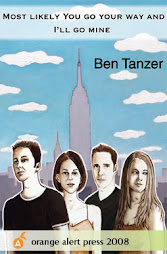

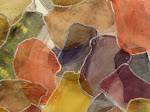








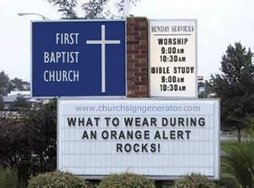


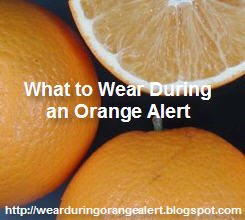

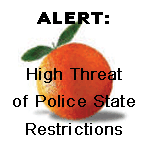
No comments:
Post a Comment